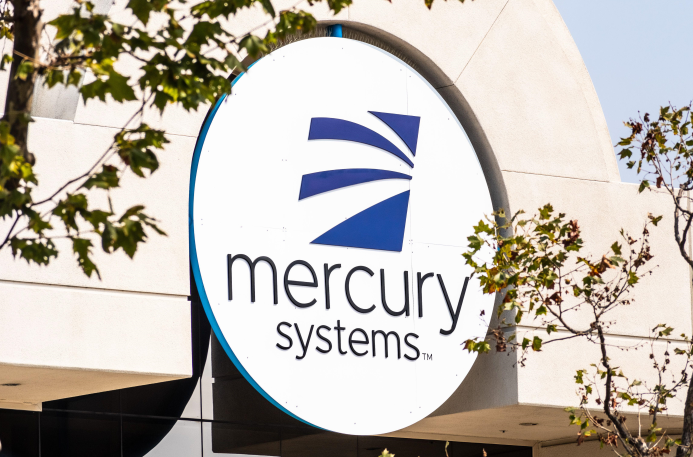
Mercury is searching for a new permanent CEO following the departure of Mark Aslett after more than 15 years in the post.
Board directors of beleaguered defense electronics specialist Mercury Systems late June 23 announced one of their own, Bill Ballhaus, has become interim CEO and president, replacing Mark Aslett, along with other expected changes in leadership.
Ballhaus took over June 24. The leadership changes—including a new permanent chief financial officer (CFO) and the appointment of two new independent board members—come as the company’s board has decided against a corporate sale for now but remains open to dealmaking. The company kicked off a strategic review in January.
“Today’s actions are the result of deliberate and thoughtful planning by the board to best position Mercury to deliver maximum value to shareholders,” board Chairman William O’Brien said late June 23.
He said Mercury already had engaged with “multiple” interested parties but decided a “refreshed” board and leadership team now was “the best path forward” for the company. “Although the process has now concluded, the board remains open to and will consider all opportunities to enhance shareholder value,” he said.
Having served as chief executive since November 2007, Aslett has left Mercury and the company is searching for a new permanent CEO. “On behalf of the board and everyone at Mercury, I want to thank Mark Aslett for his valuable contributions and years of service,” O’Brien said as part of the announcement. Aslett was not quoted in the statement.
Meanwhile, former BAE Systems Inc. CEO and President Jerry DeMuro, currently co-CEO of Eve Air Mobility, has joined Mercury’s board. Another unnamed person touted by Mercury—a former defense sector CEO and “highly qualified candidate”—will be announced as an additional independent director. That announcement will come “as soon as possible,” the company says.
O’Brien, who had previously announced his intent to retire from the board, reaffirmed his decision to not seek re-election at the 2023 shareholder meeting.
Also still a mystery is Mercury’s new CFO. “Following a comprehensive search process, the board has identified a highly qualified candidate to serve as Mercury’s next chief financial officer,” the company said. “The board intends to announce the appointment in the coming weeks and believes that the new CFO will bring valuable financial and defense program expertise to Mercury that aligns with the company’s enhanced operational focus.”
Michelle McCarthy, who has served as interim CFO since January 2023, will remain as senior vice president and chief accounting officer following the appointment of the new CFO. Michael Ruppert, who was the last permanent CFO and treasurer, left on Feb. 17.
Mercury publicly began a sale process in January, receiving inquiries from at least 40 potential bidders since then, according to the latest announcement. About half of them progressed to confidentiality agreements for negotiations but none resulted in attractive offers. Thus, the board decided to move forward with new leadership for now.
Mercury has been under pressure from activist investors JANA Partners and Starboard Value. JANA has an ownership stake of 3.4% and Starboard 4.6%, per the most recent U.S. regulatory filings, down from the 6.6% and 7.3% stakes at which they initially bought in.
Ballhaus served as CEO and president of government contractor DynCorp International in 2008-10. He previously held senior leadership positions at BAE Systems, Boeing and Hughes.
Financial analysts said the announcement represented mixed news for Mercury shareholders.
“Given the company’s underperformance over the past few years—largely due to supply chain disruptions—we believe the path to shareholder returns on company execution could be pushed to the right, compared to the option for a sale of the company, which was likely to be a [quicker] realization of shareholder returns,” said Ken Herbert of RBC Capital Markets.
Mercury has suffered a string of quarterly financial disappointments. In its last update from the first quarter of 2023, executives cut their guidance sharply. Adjusted pretax earnings for the year was expected to be $55 million (and a 19.5% operating margin), compared with the previous forecast of $98 million (30.7%). Revenue also is likely to fall $40 million to $279 million.





